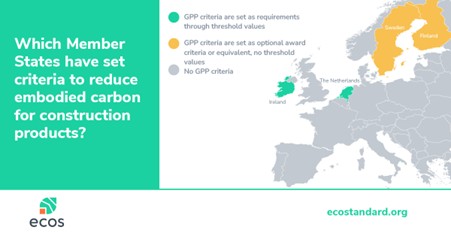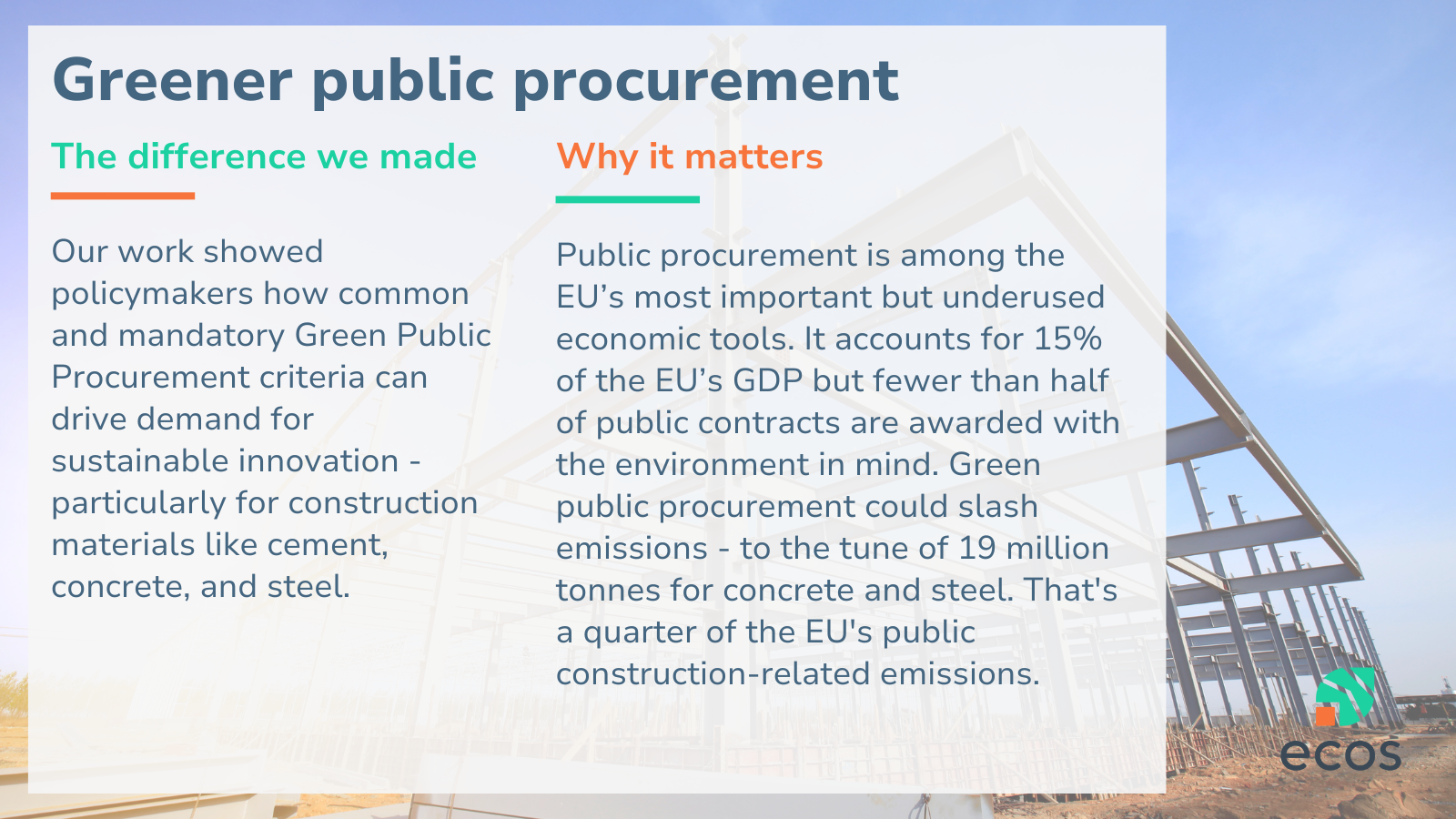Unlocking the potential of green public procurement in construction
Public procurement accounts for 15% of the EU’s GDP but fewer than half of public contracts are awarded with the environment in mind. One sector in particular deserves more attention when considering the role of GPP: construction.
Construction materials – such as concrete and steel – account for 250 million tonnes of CO2 emissions and half of the EU’s material consumption annually; even though more sustainable solutions already exist. A 2024 study – commissioned by ECOS – shows that if ambitious Green Public Procurement (GPP) criteria were uniformly introduced across the EU, emissions from concrete and steel would be slashed by nearly 19 million tonnes. That means eliminating a quarter of EU’s public construction-related emissions!
Making green public procurement a reality
In 2024, ECOS brought important visibility to greening public procurement. In November, our conference brought together 150+ representatives from civil society, industry, and EU institutions to discuss how to unlock the full potential of green public procurement against the backdrop of a new policy cycle.

Currently, GPP uptake across Member States is weak. For example, only two countries – Ireland and the Netherlands – have set requirements to reduce embodied carbon emissions. The conference made it clear to policymakers that only a well-defined and harmonised framework will create lead markets for the lowest-polluting materials – giving manufacturers the predictability needed to scale up production.

ECOS has also been actively involved in shaping policy discussions on two key regulations for construction products and materials – the Construction Products Regulation (CPR) and the Ecodesign for Sustainable Products Regulation (ESPR). With the support of our national partners, we have successfully secured a legal mandate for the EU in developing mandatory GPP criteria for materials such as concrete and steel.
Performance-based standards must lay the foundation
Any successful GPP framework must be underpinned by standards that level the playing field. Take cement and concrete standards, for example. Clinker – cement’s main binding ingredient – is responsible for over 90% of traditional cement’s environmental footprint. However, current standards are recipe-based and do not allow new materials, such as clinker substitutes, to enter the market at a large scale. This is why ECOS has worked closely with progressive industry voices, such as the Alliance for Low-Carbon Cement & Concrete, to remove market entry barriers, such as prescriptive standards.
What’s next?
ECOS has quickly become a leading voice for unlocking the potential of public procurement – and that voice will only grow stronger. In 2025, we will be launching a coalition of civil society and industry actors. Our shared vision is the strong implementation of GPP in sectoral legislation through the CPR and ESPR as well as cross-sectoral legislation through the strengthening of the Public Procurement Directives. Keep following us for more!



